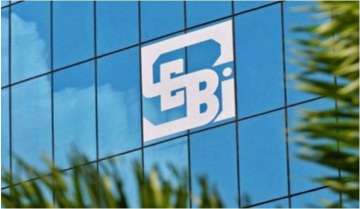Sebi relaxes preferential issue pricing norms; makes fund raising easier for cos amid COVID-19
Making it easier for corporates to raise funds amid the coronavirus pandemic, Sebi on Thursday decided to relax the pricing methodology for preferential issuance of shares, and approved certain changes in norms for acquisition of shares through open offer.

Making it easier for corporates to raise funds amid the coronavirus pandemic, Sebi on Thursday decided to relax the pricing methodology for preferential issuance of shares, and approved certain changes in norms for acquisition of shares through open offer.
The regulator's board, during its meeting on Thursday, also cleared amendments to insider trading regulations and decided to streamline settlement regulations to make procedures faster and more effective.
Sebi has decided to allow acquisition of shares through stock exchange settlement process by way of bulk or block deals during an open offer subject to certain conditions.
Experts opined that changes in the pricing guidelines for preferential issues would help promoters and investors to infuse funds into companies that are facing various challenges due to the pandemic.
Providing a "temporary" relaxation, Sebi said there would be an additional option for pricing methodology with respect to preferential issues. In cases where the new option is exercised, there would be the requirement of three-year lock-in period for such shares.
In a statement issued after the board meeting, the regulator said there have been numerous representations from various stakeholders for temporarily liberalising regulations relating to raising of capital from securities market.
The option in pricing would be available for the preferential issues made between July 1 or date of notification of amendment to the regulations, whichever is later, and December 31.
Under this option, in case of frequently traded shares, the price of the equity shares to be allotted pursuant to the preferential issue should not be less than higher of either of two levels. One is the average of the weekly high and low of the Volume Weighted Average Price (VWAP) of the related shares during the 12 weeks preceding the relevant date or such average of the weekly high and low of VWAP of shares during the two weeks preceding the relevant date.
Bhavin Shah, Partner and Leader Financial Services Tax at PwC India, said the much awaited change in pricing guidelines would cheer promoters as well as investors.
"Many deals were stuck on pricing misalignment between regulatory minimum and current market conditions. This amendment will pave the way for many of these transactions and help in liquidity situation for several companies," Shah said.
Yash Ashar, Partner & Head (Capital Markets) at law firm Cyril Amarchand Mangaldas said additional condition that those who participate in preferential issuance under the revised formula would be locked in for a three years is "primarily intended to benefit the promoters of the company as otherwise they would have had to pay a much higher price".
Sebi would also permit purchase of shares through bulk or block deals during an open offer. In case of indirect acquisitions where public announcement of an open offer has been made, the entire consideration payable under the open offer must be deposited two working days before the date of detailed public statement, the regulator said.
In case, there is a delay in making open offer due to the acquirer, a simple interest of 10 per cent would be paid to all the shareholders, who have tendered the shares in the open offer.
Separately, the watchdog would amend insider trading prohibition rules whereby maintaining a structured digital database containing nature of Unpublished Price Sensitive Information (UPSI) and the names of persons who have shared the information, have to be maintained.
In addition, this would include automation of process of filing disclosures to stock exchanges, restriction on trading window not to be made applicable for transactions as prescribed by Sebi. Among others, entities have to file the non-compliances of Code of Conduct with stock exchanges and amounts if any collected for such non-compliances would be credited to Investor Protection Education Fund. administered by the board under the Sebi Act.
As part of streamlining settlement process, Sebi said that to save time, instead of issuing settlement notice, a paragraph would be included in the show cause notice informing the noticee about the option to file a settlement application.
Further, promoters would now be included along with the principal officer for the purpose of calculation of the base amount.
The board also approved Sebi's annual report for 2019-20 and the same would be submitted to the central government. PTI SP RAM RAM